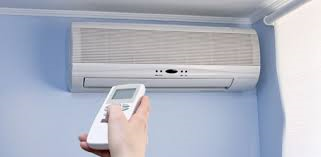Noisy Air Conditioners: Bypassing By-Laws
The Environmental Protection Act 1994 contains a number of environment standards, which if breached give an affected owner a right to bring an Enforcement Proceeding. With a noisy air-conditioner, unlike trying to enforce a noise by-law in your community management statement, you don’t have to first give notice to the Body Corporate about the breach of the noise by-law; and then wait for the Body Corporate to do something about it.
The environment standards are objective, unlike most noise by-laws. This means that they have the advantage of providing a clear objective standard against which a noisy air-conditioner, or other plant and equipment, can be tested. Usually an acoustic engineer will undertake the testing though it may pay in the first instance to purchase your own digital noise meter (available online for approximately $50.00). Your own recordings kept over time will be useful background but won’t carry the same weight as an acoustic engineer’s professional assessment.
Where you commence the application is dictated by who the owner of the noisy air-conditioner is. If the noise is coming from a property outside the community title scheme then you commence the application in the Planning and Environment Court. In that case after the application is filed both parties will usually seek to have their own acoustic engineer engaged to conduct the necessary testing to determine whether the environmental standard is being breached. This is because until the application is commenced it is unlikely that your own acoustic engineer will have access to the neighbouring property/ies to determine the precise source of the noise. After the acoustic engineers have conducted their testing, and there is a breach, then in most cases rectification of the problem usually follows without the need for an Order. If that doesn’t occur then the Court has wide ranging powers to address the problem.
If however, the noisy air-conditioning equipment is on another lot or the common property within a community title scheme then you will need to bring a dispute resolution application under Chapter 6 of the Body Corporate and Community Management Act 1997. The Commissioner for Body Corporate and Community Management requires that you undertake attempts at self- resolution before bringing such an application. That could consist of conducting your own monitoring and bringing the results of that monitoring to the attention of your fellow lot owner/occupier or the Body Corporate (as the case requires).
If the offending party fails to take the steps necessary to conform with the environmental standard then the next step is to bring the dispute resolution application (including details of the monitoring that you have undertaken) and your attempts at resolving the problem. Again, it is better to have your own acoustic engineer conduct a professional assessment to ensure that there is no doubt that the environment standard has been breached. An adjudicator has similarly wide-ranging powers as the Planning and Environment Court to address the breach.
Adjudicators have made orders ensuring that the operation of air-conditioning equipment is not to breach the environment standard. For example see, Chardonnay Palms [2010] QBCCMCmr 28 and Barinne Apartments [2012] QBCCMCmr 230.
Noisy air-conditioning is not the only environment standard contained within the Environmental Protection Act 1994 in relation to noise standards. There are standards for building work, regulated devices (whipper snippers, leaf blowers, mulchers, power tools etc), pumps, refrigerating equipment, indoor venues and open air events.
If you are “lucky” enough that your noisy neighbour is in a new development or building then you may also be able to obtain relief under the Planning Act 2016. That is because for some new developments local councils will often include specific development approval conditions that require mechanical equipment such as air conditioners or pool filters to be enclosed, shielded and/or positioned to ensure that maximum levels for nearby noise sensitive areas (such as residential areas) are not exceeded. The maximum noise levels do vary across jurisdictions but is usually set as a maximum noise pressure level measured at a nearest sensitive receptor (such as a bedroom). Alternatively the limit can be set as a decibel limit measured above background noise levels.
Also within the Planning Law area, some councils adopt as part of their planning requirements, the standards set within the Environment Protection Act 1994. For example the Brisbane City Council adopts the standard in the EPA Act where air conditioning noise from existing premises can be no louder than 5 decibels above background noise between the hours of 7:00am to 10:00pm and reducing to 3 decibels above the background noise level between 10:00pm and 7:00am. Measurement takes place at any neighbouring residence. For breaches, on the spot fines or direction notices can be issued.
It is worthwhile investigating whether your noisy neighbour is covered by such a planning approval condition or regime, as a well formulated complaint to the local council, with objective evidence of a breach of the condition, may lead to council sorting the problem out with the noisy neighbour.
This article was contributed by Michael Kleinschmidt of Stratum Legal.


Leave a Reply
Vibration through the blueboard and concrete structure can be an annoying issue particularly if the aircon condenser is bolted to a vertical surface and the fans motors age and get out of sync/wobble.
Hello Fred do you have any professional experience with installation of aircon condensers as your comment is interesting and not something we had considered.
It’s really alarming how noisy air conditioners can be considered a nuisance by the law if not handled properly. I can bet that our large central unit would end up being something like this if we don’t take care of it properly, so I better do something about it before it happens. I’ll take your advice and look for an HVAC expert that can lend us a hand with regular maintenance so we don’t have to worry about something like this.
https://www.winstonsheetmetalandhvac.com/